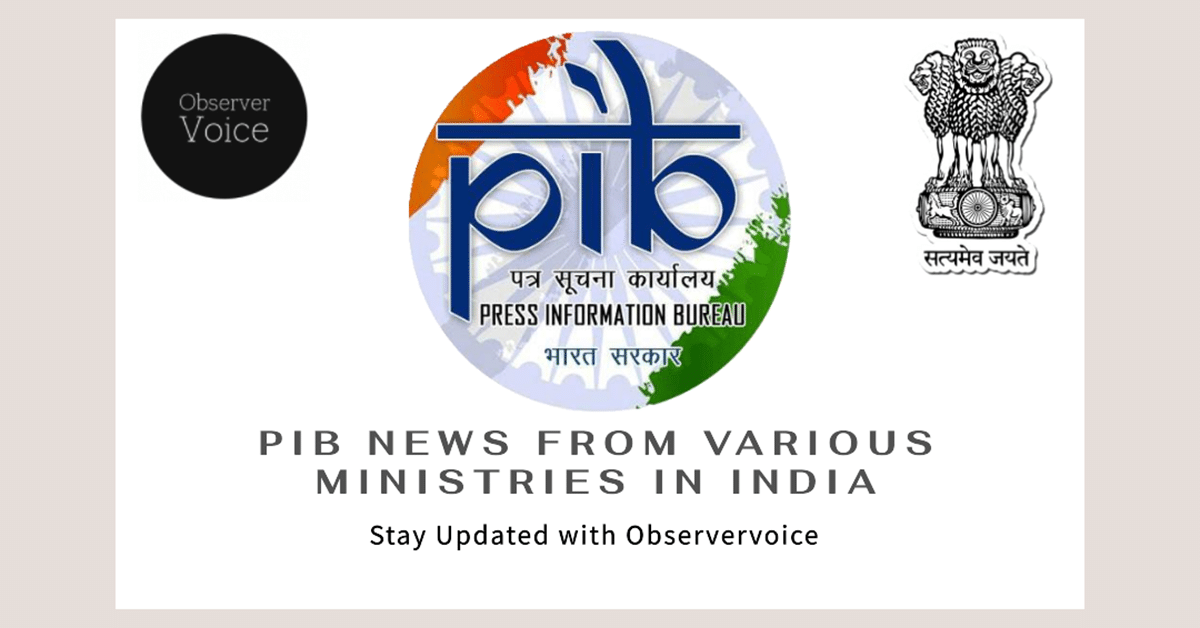India Aims for 10,000 Geographical Indication Tags by 2030

The Indian government is setting ambitious goals to enhance the country’s Intellectual Property Rights (IPR) ecosystem. At the recent GI Samagam in New Delhi, Union Minister of Commerce and Industry, Shri Piyush Goyal, announced a target of achieving 10,000 Geographical Indication (GI) tags by the year 2030. This initiative is part of a broader strategy to promote and protect unique Indian products that have distinct geographical origins. The event was organized by the Department for Promotion of Industry and Internal Trade (DPIIT) in collaboration with the India Today Group. Currently, India has issued 605 GI tags, and the government aims to significantly increase this number through a coordinated approach involving various stakeholders.
Strengthening the Intellectual Property Ecosystem
Shri Goyal emphasized the government’s commitment to bolstering the IPR ecosystem under the leadership of Prime Minister Narendra Modi. Over the past decade, the number of authorized users for GI tags has surged from 365 to an impressive 29,000. Additionally, the number of patents granted has skyrocketed from 6,000 to 100,000. This growth reflects the government’s dedication to fostering innovation and protecting intellectual property. The Minister highlighted the Prime Minister’s vision of “Vikas bhi aur Virasat bhi,” which translates to “Development and Heritage.” This vision underscores the importance of promoting both economic growth and the preservation of India’s rich cultural heritage.
To further enhance the IPR landscape, the government has introduced initiatives like the Anusandhan National Research Foundation Fund and the One District One Product (ODOP) scheme. These programs aim to support local artisans and promote unique regional products. Shri Goyal also praised the efforts of state governments, particularly those of Uttar Pradesh and Maharashtra, in promoting GI products. The government has streamlined the application process for GI tags, making it more efficient and accessible by moving it online.
The Need for Better Branding and Quality Standards
One of the key points raised by Shri Goyal was the necessity for improved branding of GI products. He stressed the importance of collaborating with organizations like the Food Safety and Standards Authority of India (FSSAI) and the Bureau of Indian Standards (BIS) to establish better quality standards. This collaboration is crucial for addressing the growing issue of counterfeit products that threaten the authenticity of GI-tagged items. By ensuring that GI products meet high-quality benchmarks, the government aims to enhance consumer trust and promote these products both domestically and internationally.
The Minister also highlighted the potential for increased visibility and marketing of GI products. He suggested that partnerships with the private sector and government organizations, such as railways and airports, could facilitate the promotion of these unique items. By leveraging e-commerce platforms and government marketplaces, GI-tagged products can reach a wider audience. This strategy not only supports local artisans but also helps to unlock the export potential of these products, showcasing India’s diverse cultural heritage to the world.
Promoting GI Products on Global Platforms
In his address, Shri Goyal discussed the importance of promoting GI products on international platforms. He proposed that Indian embassies abroad could play a significant role in showcasing these products, similar to the ODOP initiative. This approach could help unlock new markets for Indian artisans and boost exports. The Minister noted that e-commerce platforms are increasingly interested in Indian handloom, handicrafts, and specialty food products. By listing GI-tagged items on these platforms, the government can enhance their visibility and accessibility to global consumers.
The collaboration between various stakeholders, including the government, private sector, and local artisans, is essential for the success of this initiative. By working together, they can create a robust ecosystem that supports the growth of GI products. The government’s commitment to achieving 10,000 GI tags by 2030 is a significant step toward preserving India’s cultural heritage while promoting economic development. With concerted efforts and strategic partnerships, India can position itself as a leader in the global market for unique and authentic products.
Observer Voice is the one stop site for National, International news, Sports, Editor’s Choice, Art/culture contents, Quotes and much more. We also cover historical contents. Historical contents includes World History, Indian History, and what happened today. The website also covers Entertainment across the India and World.

